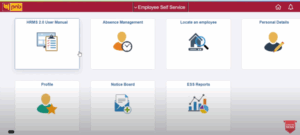The Importance of Knowledge Management in Streamlining Contact Center Operations

Contact centers have become the frontline of client engagement in the rapidly evolving customer service landscape. Knowledge management is critical in maintaining efficiency and consistency in these high-pressure environments. An effective strategy for managing information not only supports agents in delivering top-notch customer support but also contributes to the organization’s overall success. Keep reading to discover how a robust knowledge management system can transform your contact center operations and drive business growth.
Enhancing Customer Experience Through Effective Knowledge Sharing
Customer expectations are at an all-time high, and contact center agents’ ability to meet these expectations hinges on efficient knowledge sharing. Customers enjoy shorter wait times and more accurate responses when agents can quickly access the information they need. This level of service significantly enhances the overall customer experience.
A comprehensive contact center knowledge management system can also personalize the customer journey. Agents with detailed historical data and well-structured information can provide a more tailored experience, making customers feel valued and understood. This personal touch often translates into increased customer loyalty and higher satisfaction scores.
Besides direct interactions, effective knowledge sharing also informs the self-service resources available to customers. Comprehensive FAQs, troubleshooting guides, and online forums empowered by knowledge management can resolve customer issues without direct contact, catering to those who prefer self-service options.
Another aspect of improving customer experience is the consistency of the information provided. When all agents draw from a robust, centralized knowledge base, the information conveyed to customers is uniform. This ensures that customers receive the same high-quality service no matter whom they speak to within the contact center.
Streamlining Contact Center Operations with Centralized Knowledge Bases

Centralization is a critical aspect of effective knowledge management in contact centers. A centralized knowledge base serves as a single source of truth for information, streamlining operations and eliminating the confusion that can arise from multiple information sources. It also allows for easier maintenance and updates to the data contained within.
A centralized knowledge system reduces the need for agents to reach out to peers or escalate calls to find answers, thereby expediting resolution times and increasing efficiency. This central repository can be integrated with customer relationship management (CRM) systems to provide a seamless experience for both agents and customers.
Centralization also enhances security and compliance. With all information stored in a central location, it’s easier to implement and monitor access controls and data privacy measures. This is especially important in industries dealing with sensitive personal information and those required to comply with various regulations.
Investments in knowledge management technologies, such as machine learning and natural language processing, can further refine the efficiency of centralized knowledge bases. These tools can automatically categorize and retrieve information, predict customer needs, and provide agents with the best responses, further streamlining contact center operations.
The Role of Knowledge Management in Employee Training and Empowerment
Knowledge management facilitates customer engagement and provides a foundation for employee training and empowerment. A well-structured knowledge base can accelerate the onboarding process for new agents by providing them with easy access to the information they need to start helping customers effectively right away.
Ongoing training is also made simpler and more effective. A dynamic knowledge management system delivers continuous learning opportunities instead of traditional methods that can quickly become outdated. Agents can access the latest updates and educational materials as part of their regular workflow, staying current with best practices and industry standards.
Empowerment plays a significant role in job satisfaction and productivity in contact centers. When agents feel supported by robust resources and have autonomy in accessing information, their confidence and efficiency improve. Knowledge management gives them the tools to make informed decisions and take ownership of their roles.
Furthermore, a culture fostering knowledge-sharing and collaboration attracts prospective employees. When job seekers recognize that an organization values and invests in knowledge management, it positions the company as a desirable workplace, helping to attract top talent in the competitive job market.
Read More: 7 Best Ways To Manage Knowledge In Banking & Financial Institutions To Improve Customer Experience
Conclusion:
Altogether, knowledge management is a cornerstone for enhancing customer experiences, streamlining operations, and empowering employees in contact centers. By investing in robust knowledge systems, organizations can drive efficiency, ensure consistency, and foster a culture of continuous improvement and collaboration.

Mahesh Kumar is a dynamic marketing consultant and tech enthusiast with a passion for driving business growth through his innovative strategies and cutting-edge technology. With 6 years of experience in the industry, he has helped numerous businesses leverage the power of digital marketing to reach their target audience, build brand awareness, and increase sales.








